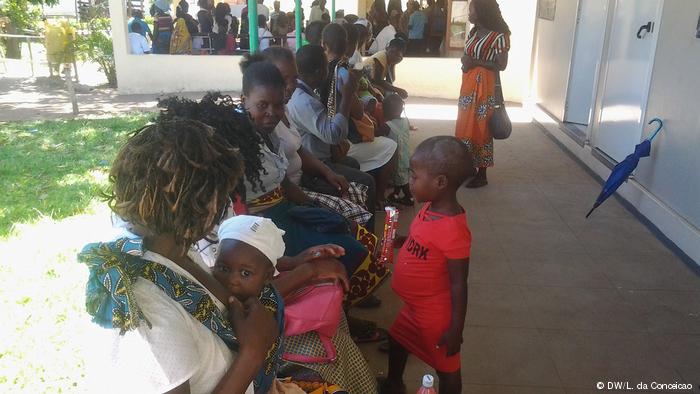Mozambique: Two arrested in Mocuba transporting 230 kg of cannabis - Watch
Officials steal medicine from hospitals in Inhambane

File photo: DW
Patients are sometimes forced to pay five times more for medicines in private pharmacies and informal markets in Inhambane, southern Mozambique, because of the lack of medicines in public hospitals. Authorities recognise the problem.
Public hospitals in Inhambane are without medicines because of theft and diversion by hospital officials themselves. The situation is so serious that patients have to buy the drugs in informal markets and from private pharmacies.
In a debate organised by the Mozambican Debt Group earlier this month in Maxixe, event spokesman Egas Daniel addressed the issue and criticised a phenomenon that is harming the local population. “It has not been easy. A private person creates a hospital and acquires medicines for the province while a state hospital is unable to get drugs. That’s not logical,” he says.
Maria Savanhane, a patient and resident in Inhambane, told DW Africa that the lack of medicines in public hospitals was commonplace because employees themselves set up their own pharmacies.
“Of course, everyone says that the employees themselves are the ones who divert drugs for their own pharmacies – for us to buy,” she says.
Jorge Massicame, another Maxixe resident, said that he could not treat his daughter’s illness because he the public pharmacy did not have the medication and the private cost was beyond his means.
“I received this prescription and the medication was not available in the [public] pharmacy, and it cost 400 meticais [about six Euros] privately, which I couldn’t afford. It has happened several times. What is to become of us?” he asks
Authorities acknowledge the problem
Inhambane Provincial Directorate of Health spokesperson Stélio Tembe acknowledges that drugs sold in the informal market are provided to hospitals but diverted by employees.
“It’s often the same drugs, which cost only five meticais in the hospital, but on the informal market cost 200, 300, even 400 meticais. Unfortunately, these medicines are sold in informal markets or in private homes,” he says.
Government officials are working to promote lectures in communities and involve the public and the police to address the situation, Tembe explains.
“We work in a multisectoral way, urging the public to attend lectures, and also with the police commands. We know it’s happening and we condemn the practice,” he says.












Leave a Reply
Be the First to Comment!
You must be logged in to post a comment.
You must be logged in to post a comment.